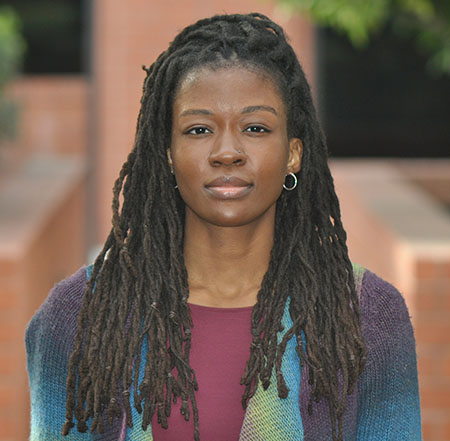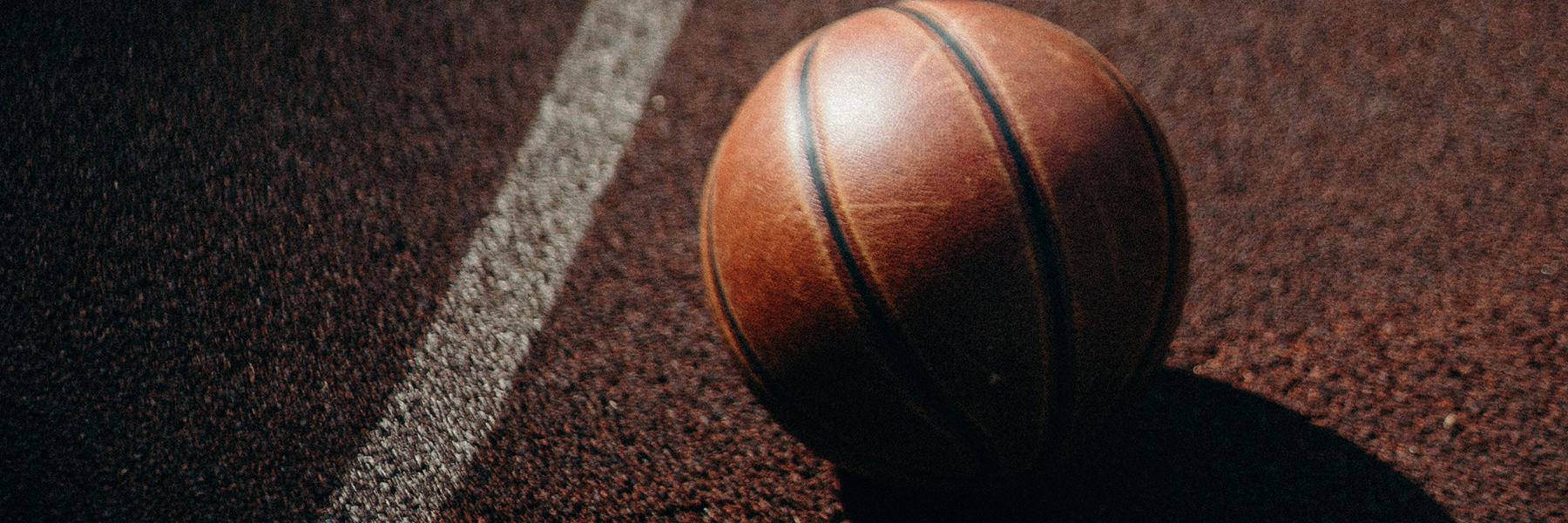The Scholars’ Hub @ Home series event scheduled for Feb. 2 at noon will feature Danielle Howard, assistant professor in the Department of Theatre in the School of the Arts, Media, Performance & Design. Howard will present a talk titled “Dancin’ Feet: Harlem and Basketball in the 1920s-30s.”

Howard holds a PhD in theatre and performance studies from UCLA and writes at the intersections of race, gender, performance, visual and sonic culture. She is currently working on a monograph titled “Making Moves: Race, Basketball, and Embodied Resistance” that spans the 20th and 21st centuries. The project foregrounds Black basketball players’ virtuosic and improvisational movements as oriented towards a kinetic knowledge of freedom and akin to contemporaneous jazz aesthetics. An article excerpted from this work, “Dribbling Against the Law: The Performance of Basketball, Race, and Resistance” is published in Sports Plays (Routledge, 2021).
“This discussion is connected to the monograph. It is a fundamental aspect of thinking about the relationship between sports, performing arts, and Black culture,” said Howard. “It is my hope that the takeaway from this is a new understanding between sport and performing arts and that the connection is important to Black expressive culture as well as performances of resistance.”
The series event will focus on the New York Renaissance basketball team, an all-Black professional team, that emerged within the social and cultural movement known as the Harlem Renaissance. Playing basketball during the epicenter of Black entertainment, the talk will highlight the history of Black basketball players who used their bodies to orient themselves toward freedom and secure a cultural legacy.
On Feb. 13, 1923, the New York Renaissance team was created. The Renaissance, commonly called the “Rens,” became one of the dominant teams of the 1920s and 1930s. Robert L. Douglas was the team’s founder and his main objective was to give New York City’s male, Black athletes opportunities to better themselves.
In the 1932-33 season, the Rens won 88 consecutive games. Seven years before the launch of the NBA, the Rens won the World Professional Basketball tournament in 1939. Ten years later, the Rens, then based in Dayton, Ohio, played their last game as part of the racially integrated National Basketball League. By that time, the NBA was operating, and interest in barnstorming basketball had waned. In 1963, the Rens team was inducted into the Basketball Hall of Fame.
“I analyze how Black performance is imagined in and through basketball spaces. I do not aim, however, to essentialize basketball performance as a performance of Blackness. Rather, I explore the complicated relationship between the Black body as both flesh-and-blood and as an abstraction within a basketball space,” said Howard.
Howard explains there are key takeaways for participants that focus on historical elements about how sports has been involved in racial and cultural politics and how these conversations surrounding performances of resistance within sport continue to transform throughout the years.
“The reality is that in the face of anti-Black racism,” said Howard, “I hope viewers take away a depiction of Blackness not tethered to suffering. Rather, these players illustrate a sense of resistance and joy in the art that they produce in playing basketball.”
On a larger scale, Howard explained that the socio-emotional benefits of sports and performing arts can be mobilized in thinking about ways of social and cultural inclusion. She said the societal impact is not only for those who have been victims of social inequality but for society to move forward using sports and performing arts beyond the boundaries of celebrity culture and fathom.
“It’s timely for people to realize that when we gather once again in-person, we reframe the ways we think about liveness, being present with one another and the ways we use sports and arts to interact with one another,” said Howard.
Howard said that participants of Scholars’ Hub will not only leave learning history, but they will also gain an opportunity to take in the knowledge they learn, reflect and use it to shift their perspective moving forward.
“Sports and performing arts may not have the same overt connection, but at its core and in terms of my methodology, I’m interested in adapting basketball as a theatrical craft,” Howard added.
Howard’s lecture will be followed by a question-and-answer period.
The Scholars’ Hub @ Home speaker series features discussions on a broad range of topics, with engaging lectures from some of York’s best minds. The Scholars’ Hub events are done in partnership with Vaughan Public Libraries, Markham Public Library, and Aurora Public Library. The Scholars’ Hub @ Home series is presented by York Alumni Engagement. All members of the York community are welcome to attend the events. Sessions take place online at noon.
To register for the upcoming seminar event, click here.


